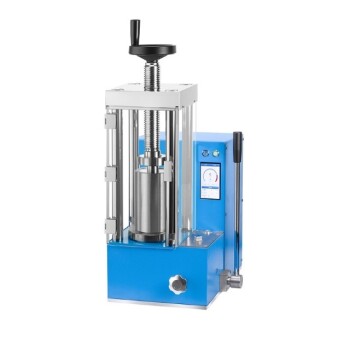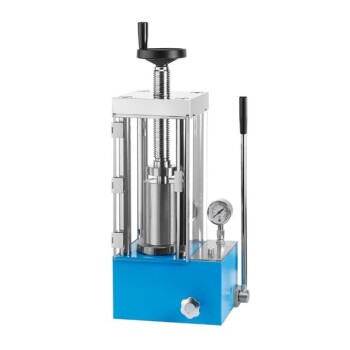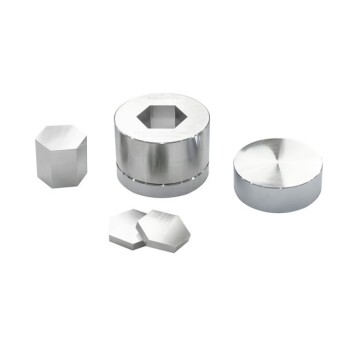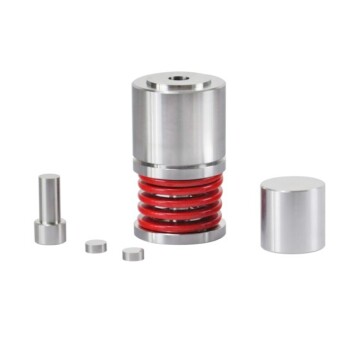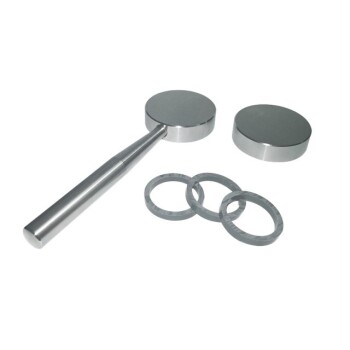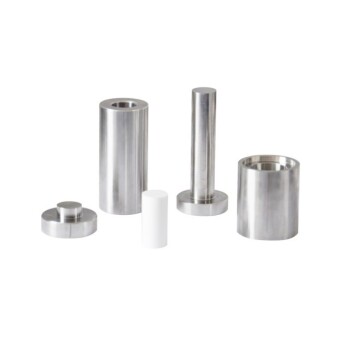At its core, Cold Isostatic Pressing (CIP) is a foundational technology for industries that cannot compromise on material integrity and performance. The primary sectors that rely on CIP are Aerospace, Medical, and Advanced Manufacturing, particularly for creating high-value components from powdered materials where uniform density is a critical requirement.
The central value of CIP lies in its ability to produce components with perfectly uniform density and strength, regardless of shape complexity. This makes it the go-to process when traditional pressing methods, which apply force from only one direction, would create internal weaknesses or fail to form the part altogether.
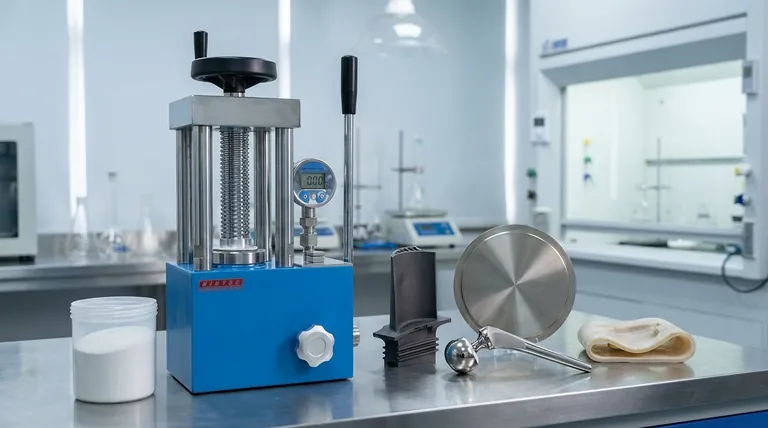
Why CIP is the Preferred Method for Demanding Applications
The decision to use CIP is driven by the need for superior material properties that other consolidation methods cannot achieve. It all comes down to the unique way pressure is applied.
The Principle of Uniform Pressure
Unlike conventional die pressing, which applies force uniaxially (top-down), CIP submerges a component sealed in a flexible mold into a fluid. This fluid is then pressurized, exerting equal force on the component from all directions simultaneously—this is isostatic pressure.
This method eliminates the friction and bridging effects seen with die walls, which are the primary causes of defects in other processes.
Achieving Uniform Density
The direct result of uniform pressure is uniform density. By compacting the powdered material evenly throughout its volume, CIP eliminates hidden voids, weak spots, and internal stress gradients.
This uniformity ensures that the final component is incredibly strong and behaves predictably under stress, which is non-negotiable for critical applications.
Enabling Complex Geometries
Because the "die" is a flexible mold, CIP can produce parts with complex shapes, undercuts, and intricate internal cavities. This allows for the creation of near-net-shape parts that require significantly less post-process machining.
This capability not only saves on material waste and production time but also opens up design possibilities that are impossible with rigid tooling.
A Closer Look at Key Industrial Applications
The unique benefits of CIP directly address the challenges faced by several high-tech industries.
Aerospace and Defense
In aerospace, component failure is not an option. CIP is used to form high-strength, lightweight parts like turbine blades, engine components, and structural nodes from advanced metal alloys and ceramics.
The process ensures maximum reliability and fatigue resistance, which are essential for parts operating under extreme temperature and pressure. It is also used for refractory metals like tungsten and molybdenum needed in defense systems.
Medical Implants and Devices
For medical implants, biocompatibility and mechanical integrity are paramount. CIP is the standard for producing ceramic and metallic prosthetics, such as hip and knee joints, as well as dental implants.
The uniform density prevents premature wear and failure, while the ability to create near-net shapes reduces the need for extensive machining that could compromise the surface finish and integrity of the implant.
Advanced Manufacturing and Electronics
CIP is essential for producing a variety of specialized industrial components. This includes creating large, high-purity sputtering targets used in manufacturing semiconductors and solar panels, where density affects the coating process.
It is also used for high-performance carbides, cutting tools, and automotive parts like bearings and oil pump gears, where exceptional wear resistance derived from uniform hardness is a key performance metric.
Understanding the Trade-offs and Process Constraints
While powerful, CIP is not a universal solution. Understanding its context is key to leveraging it effectively.
It's a "Green" State Process
CIP compacts powder into a solid form known as a "green" part. This part has the shape and density required but lacks final metallurgical strength.
To achieve its final properties, a green part must undergo a secondary high-temperature process called sintering, which bonds the material particles together. CIP and sintering are almost always used in sequence.
Tooling and Cycle Times
The flexible molds used in CIP have a finite lifespan and must be replaced periodically. Furthermore, the process of loading, pressurizing, depressurizing, and unloading is inherently slower than automated die compaction.
This makes CIP best suited for high-value components where material performance justifies the longer cycle time, rather than for mass-producing simple, low-cost parts.
Material Suitability
CIP is designed specifically for consolidating powders. The most common materials include ceramics, refractory metals (tungsten, molybdenum), graphite, carbides, and powdered metal alloys. It is not a process for shaping or densifying solid blocks of material.
Is CIP the Right Process for Your Goal?
To determine if CIP is the correct choice, consider the primary objective for your component.
- If your primary focus is maximum component reliability and uniform strength: CIP is the gold standard for eliminating internal defects and ensuring predictable performance in critical applications.
- If your primary focus is creating complex or intricate shapes from powdered materials: CIP offers design freedom that is impossible to achieve with rigid uniaxial pressing.
- If your primary focus is high-volume, low-cost production of simple shapes: A more conventional method like die compaction will likely be a more cost-effective solution.
Ultimately, Cold Isostatic Pressing empowers engineers to create components whose performance is defined by material purity and structural integrity, not the limitations of the manufacturing process.
Summary Table:
| Industry | Key Applications | Primary Benefits |
|---|---|---|
| Aerospace and Defense | Turbine blades, engine components, structural nodes | Uniform density, high strength, fatigue resistance |
| Medical Implants and Devices | Hip and knee joints, dental implants | Biocompatibility, reduced machining, wear resistance |
| Advanced Manufacturing and Electronics | Sputtering targets, cutting tools, automotive parts | Complex geometries, high purity, exceptional wear resistance |
Need high-performance components with uniform density and complex shapes? KINTEK specializes in lab press machines, including automatic lab presses, isostatic presses, and heated lab presses, tailored for laboratory needs. Let us help you achieve superior material integrity and reliability in your applications—contact us today to discuss your specific requirements and discover how our solutions can enhance your production process!
Visual Guide
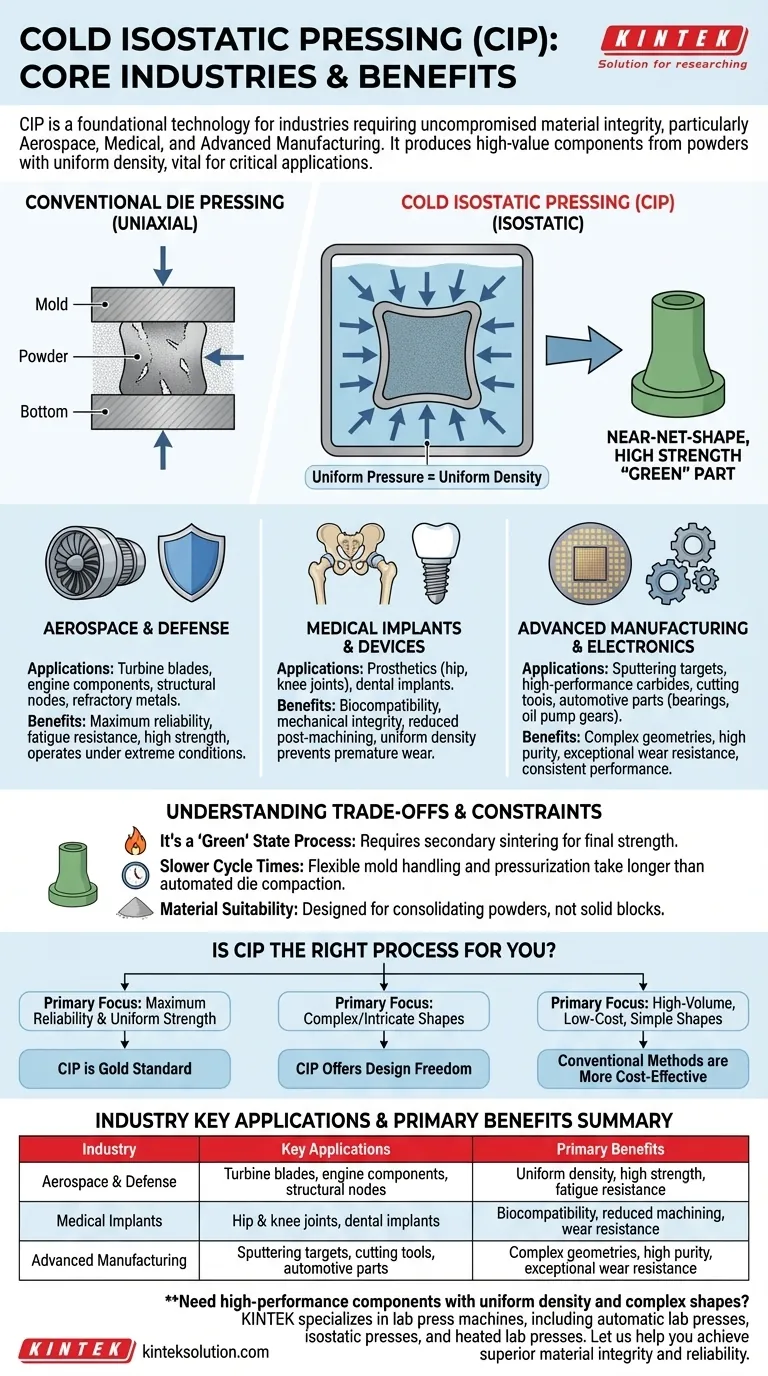
Related Products
- Electric Lab Cold Isostatic Press CIP Machine
- Electric Split Lab Cold Isostatic Pressing CIP Machine
- Manual Cold Isostatic Pressing CIP Machine Pellet Press
- Automatic Lab Cold Isostatic Pressing CIP Machine
- Lab Polygon Press Mold
People Also Ask
- What industries benefit from Cold Isostatic Pressing technology? Ensure Reliability in Aerospace, Medical, and More
- In which industries is CIP commonly applied? Discover Key Sectors Using Cold Isostatic Pressing
- What are the characteristics of the isostatic pressing process? Achieve Uniform Density for Complex Parts
- What are the two main techniques used in cold isostatic pressing? Wet-Bag vs. Dry-Bag Methods Explained
- What is the standard procedure for Cold Isostatic Pressing (CIP)? Master Uniform Material Density
